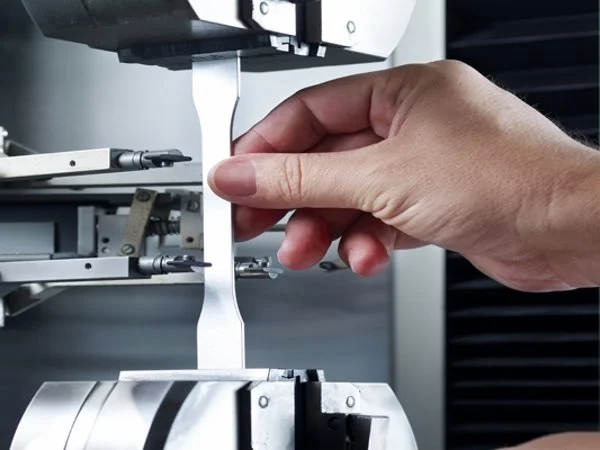NF EN ISO 6507-4 Hardness Testing Calibration Test
The NF EN ISO 6507-4 hardness testing calibration test is a critical procedure within the oil and gas sector, ensuring that materials used in this industry meet stringent quality standards. This test is essential for maintaining safety and reliability in drilling equipment, pipelines, and other components where wear and tear can lead to catastrophic failure.
The NF EN ISO 6507-4 hardness testing method involves using a diamond indenter with specific geometry (Cone Angle = 136°) and a specified test force. The calibration process ensures the accuracy of the hardness tester by comparing its readings against known reference materials or standards.
Calibration is vital for several reasons:
- To ensure accurate measurements that comply with industry standards
- To maintain consistent quality across manufacturing batches and equipment
- To enhance the reliability of predictive maintenance schedules by accurately assessing material wear
- To meet regulatory requirements for oil and gas operations, such as those outlined in API (American Petroleum Institute) specifications.
The test involves applying a calibrated force to a specimen, measuring the resulting indentation depth, and calculating hardness based on predefined formulas. This process is crucial for ensuring that materials used in critical components are within acceptable ranges for their intended applications.
For instance, in high-pressure drilling operations, the strength and wear resistance of drill bits can significantly impact operational efficiency and safety. Accurate hardness testing ensures that these components meet the necessary standards before deployment.
The NF EN ISO 6507-4 method is widely used across various sectors within oil and gas, including:
- Drilling equipment
- Pipelines for transportation of hydrocarbons
- Valves and fittings
- Storage tanks
In each case, the test helps ensure that materials are capable of withstanding the harsh operating conditions typical in oil and gas environments.
Why It Matters
The NF EN ISO 6507-4 hardness testing calibration test is not just a compliance exercise but a vital component of quality assurance in the oil and gas sector. Ensuring that materials used are within acceptable hardness ranges can significantly impact operational safety, efficiency, and cost.
Accurate hardness measurements provide valuable insights into material performance under stress, which is crucial for predicting potential failures and implementing timely maintenance strategies. This proactive approach helps prevent costly downtime and accidents associated with equipment failure.
The test also ensures that materials meet the stringent requirements set by industry standards such as API 5CT (Drilling Tools) and ASME (American Society of Mechanical Engineers). Compliance with these standards is essential for maintaining a good reputation in the market and ensuring safety and reliability.
In addition to operational efficiency, accurate hardness testing contributes to long-term cost savings. By identifying weaknesses early through calibrated testing, companies can avoid expensive replacements and repairs. This proactive approach also helps extend the lifespan of critical components, reducing overall maintenance costs.
Benefits
- Achieving Regulatory Compliance: Ensures that all materials used in oil and gas operations meet the stringent requirements set by regulatory bodies like API and ASME.
- Increase Operational Safety: By ensuring that materials are within acceptable hardness ranges, the risk of catastrophic failure is minimized, enhancing overall safety standards.
- Predictive Maintenance: Accurate testing allows for better prediction of material wear and tear, enabling timely maintenance schedules to be implemented.
- Cost Savings: Early identification of potential issues through hardness testing can lead to significant cost savings by preventing expensive replacements and repairs.





